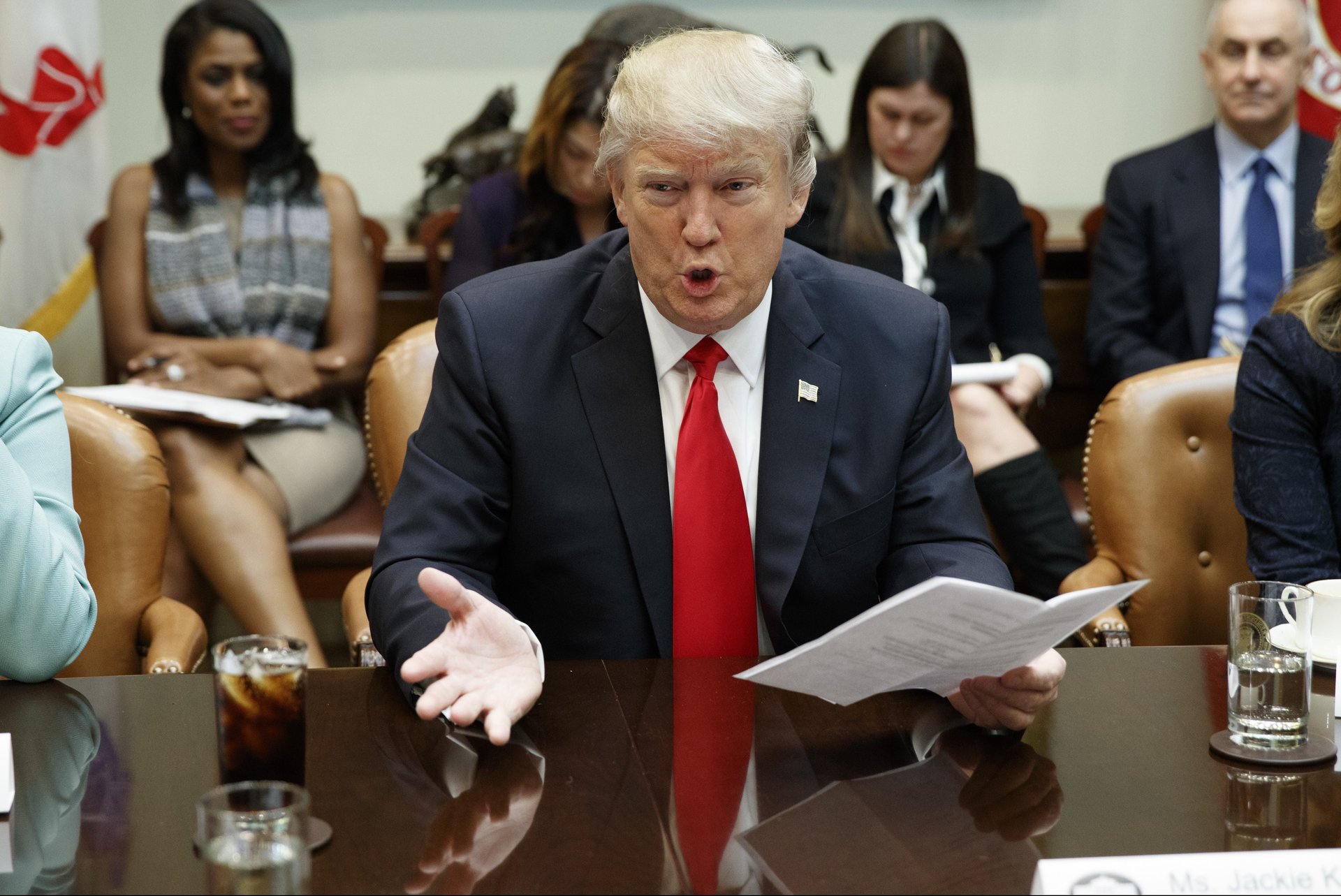Trump’s executive order to revoke two regulations for every new one made is “not a legitimate use of presidential authority,” according to a Columbia politics professor
US president Donald Trump’s latest executive order, signed Monday, bars federal agencies—like the US Environmental Protection Agency, or the Food and Drug Administration, for example—from issuing any new regulation without simultaneously repealing two others. In that case, agencies will reportedly be able to submit which regulations they would choose to drop, and the White House would review them, according to CNBC News.


US president Donald Trump’s latest executive order, signed Monday, bars federal agencies—like the US Environmental Protection Agency, or the Food and Drug Administration, for example—from issuing any new regulation without simultaneously repealing two others. In that case, agencies will reportedly be able to submit which regulations they would choose to drop, and the White House would review them, according to CNBC News.
“That sounds ridiculous to me,” said Gregory Wawro, a professor at Columbia University with expertise on the American legislature. It’s “not a legitimate use of presidential authority,” Wawro says.
Wawro explains that the authority to pass regulations was granted to all agencies through congressional statutes. It isn’t within the legitimate power of the president to simply revoke it to that degree.
“The president cannot repeal statutes,” Wawro said. “If the law gives agencies authority to make regulations, in order to remove that authority, then you have to pass a new statute revoking that authority. You’d have to go through Congress.” The text of the executive order is not yet available, so it is hard to assess the extent to which it may constitute an overreach.
But Republicans in the House of Representatives had already been working on ways to circumvent agency authority; Trump’s executive order bears similarities to the Regulations from the Executive in Need of Scrutiny Act, known as the REINS Act, recently passed in the House. The REINS Act would require a congressional vote to approve any new regulation passed by an agency—effectively granting Congress unprecedented ability to veto any new regulation—while also requiring one regulation repealed for every new regulation passed.
Prior to this move, the biggest hurdle to regulation put in place by a president was in 1981, when Ronald Reagan began requiring agencies to include a cost-benefit analysis on any new regulation they put forth, according to Wawro. But that didn’t revoke agencies’ law-given authority to make regulations; it just made that authority more difficult to use. Trump’s executive order goes far beyond that by requiring agencies to repeal regulations.
“I can’t recall any president who tried to do something like this,” Wawro said. “From a legal standpoint—gosh, I don’t know. It just seems strange. It’s almost like how a parent would discipline a child.”
The executive order also mandates a budget of $0 for new regulation in 2017, and contains language setting out a process for how the current freeze on new regulations will end, according to a senior administration official who spoke with CNBC News.